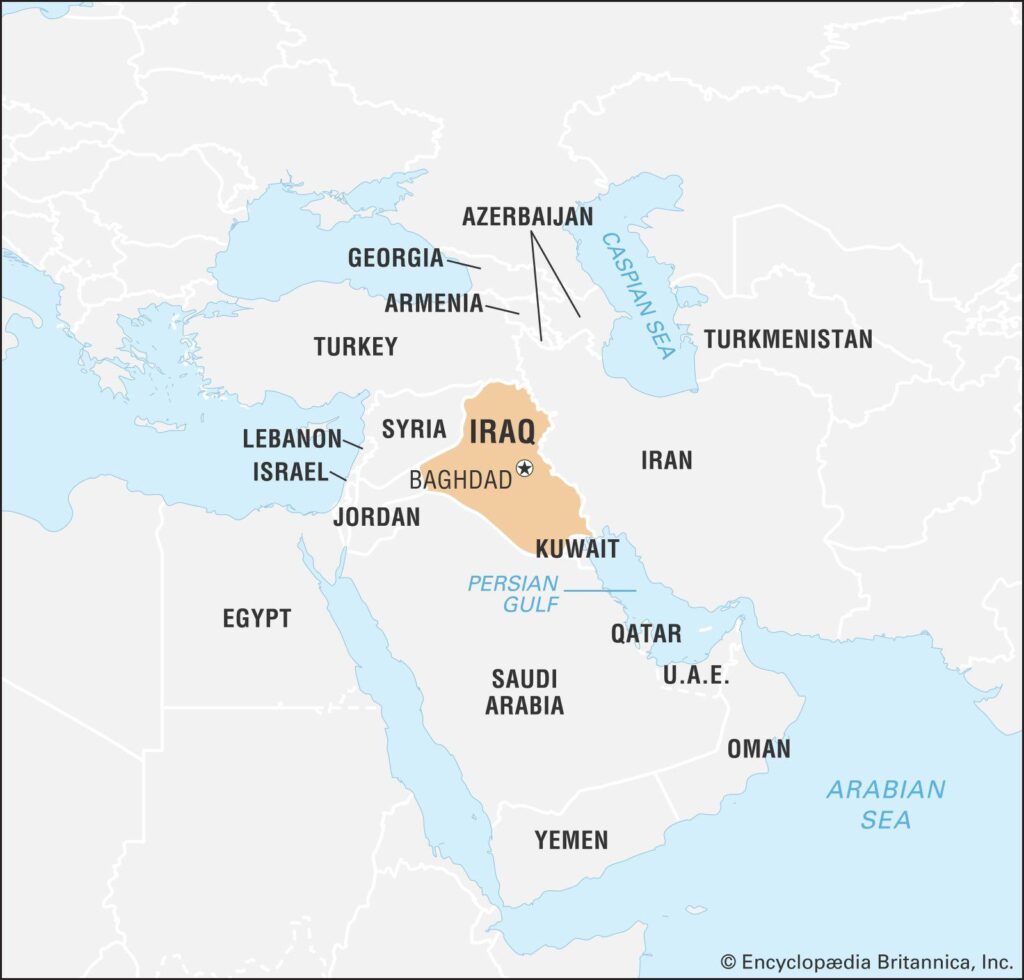US Embassy Staff Withdrawal in Baghdad Signals Heightened Regional Instability Amid Iran’s Assertive Moves
In a marked intensification of geopolitical strain, the United States has commenced the evacuation of personnel from its embassy in Baghdad, Iraq. This action responds to a surge in hostile activities linked to Iranian influence and escalating threats against American diplomatic missions. As Iran’s sway over Iraqi affairs grows and regional security deteriorates, Washington is adopting precautionary steps to protect its staff and strategic interests. This development not only highlights the fragile nature of US-Iran relations but also raises alarms about Iraq’s stability and the wider Middle East’s security environment as tensions continue to mount.
Heightened Security Risks Prompt US Embassy Evacuation Amid Iran’s Regional Assertiveness
The recent move by US authorities to withdraw non-essential embassy staff from Baghdad reflects deepening concerns over escalating provocations by Tehran. Iran has increasingly demonstrated aggressive military posturing through maneuvers and rhetoric that threaten American presence in Iraq. Once considered a pivotal hub for US diplomacy within Iraq, the embassy now faces vulnerabilities due to expanding Iranian-backed militia activity and intensified hostile messaging from Tehran’s leadership.
Intelligence assessments reveal that militias supported by Iran are actively preparing operations potentially targeting American assets on Iraqi soil. Several critical factors have contributed to this elevated threat level:
- An uptick in reconnaissance missions conducted by Iranian forces near key US installations.
- A series of targeted assaults on facilities associated with American interests.
- Recent political shifts within Iraq that may empower extremist groups aligned with Tehran’s agenda.
The United States is currently reevaluating its strategic posture, balancing enhanced protective measures around diplomatic sites with efforts to maintain a firm stance against Iranian provocations. The coming weeks will be crucial as both nations navigate this volatile geopolitical terrain amid growing uncertainty.
Consequences of Diminished Diplomatic Footprint on US-Iran Dynamics
The drawdown of personnel at the US embassy carries significant ramifications for America’s diplomatic engagement with both Iraq and Iran. A reduced physical presence limits Washington’s ability to conduct real-time monitoring of developments on the ground, curtailing intelligence gathering essential for anticipating threats or mediating conflicts influenced by Tehran’s expanding footprint across Iraqi politics and security sectors.
This contraction risks emboldening Iranian proxies who may interpret it as an opportunity to escalate pressure without immediate repercussions. Moreover, it complicates coordination with local allies who rely heavily on direct communication channels facilitated through embassy operations.
- Perception Challenges: Allies might question America’s commitment while adversaries could perceive withdrawal as weakness encouraging further aggression across the region.
- Crisis Response Limitations: Reduced staffing impairs rapid reaction capabilities during emergencies or sudden escalations involving proxy groups or state actors aligned with Iran.
- Diplomatic Isolation Risks: Fewer diplomats onsite diminish opportunities for dialogue aimed at de-escalation or conflict resolution between competing factions within Iraq influenced by external powers like Iran.
- Miscalculation Hazards: Limited communication heightens chances for misunderstandings that could inadvertently trigger broader confrontations between Washington and Tehran-backed entities.
Tactical Recommendations: Strengthening Security Protocols & Community Engagement Initiatives
The current climate necessitates robust collaboration among local authorities, international partners, and diplomatic missions focused on enhancing safety while fostering regional stability. Incorporating advanced surveillance technologies such as integrated drone systems combined with continuous real-time monitoring can significantly improve threat detection capabilities around sensitive sites.[1]
- Expand Intelligence Sharing: Deepen cooperation frameworks among allied intelligence agencies operating in Iraq for timely identification of emerging threats linked to Iranian proxies or extremist factions.
- Crisis Preparedness Drills: Regularly conduct comprehensive emergency response exercises involving embassy personnel alongside local security forces ensuring readiness under various attack scenarios including indirect fire or sabotage attempts.
- Civic Safety Programs:Create community outreach initiatives designed to engage residents directly affected by instability—encouraging information sharing while building trust between locals and foreign representatives tasked with their protection.[2]
Nurturing Positive Relations Through Cultural Diplomacy & Economic Collaboration
Sustained peacebuilding requires more than just heightened security; fostering goodwill via cultural exchange programs alongside economic partnerships can help bridge divides exacerbated by conflict dynamics fueled externally. These initiatives serve dual purposes: promoting mutual understanding while stimulating local economies vulnerable due to ongoing unrest.
| Program Type | Description |
|---|---|
| Cultural Exchange Events | Create festivals celebrating Iraqi heritage alongside American traditions aimed at strengthening interpersonal connections across communities affected by conflict zones; |
| Entrepreneurship Workshops | < td >Facilitate networking sessions linking Iraqi business owners with U.S.-based companies encouraging joint ventures contributing toward economic resilience; td > tr >|
Main Insights & Outlook Amid Rising Tensions Between Washington And Tehran In The Middle East
The withdrawal from Baghdad epitomizes how fragile conditions have become amid intensifying rivalry between the United States and Iran throughout Iraq—a country caught at a crossroads shaped heavily by external influences seeking dominance.
This recalibration signals not only immediate concerns about protecting lives but also foreshadows complex challenges ahead regarding diplomacy effectiveness amidst shrinking footprints.
As these developments unfold rapidly against an already unstable backdrop marked recently (2024) by increased militia attacks—such as last month’s rocket strikes near Green Zone compounds—the global community remains vigilant watching potential ripple effects impacting broader regional peace prospects.
Continued updates will be vital given how swiftly circumstances evolve when dealing simultaneously with proxy warfare tactics intertwined deeply into national sovereignty issues affecting millions living daily under uncertainty.
[1] Recent advancements show drones equipped with AI-powered analytics improving perimeter defense efficiency significantly (Defense Tech Review – May 2024).
[2] Community policing models implemented successfully elsewhere demonstrate measurable reductions in violence when locals actively participate (Global Security Journal – April 2024).
